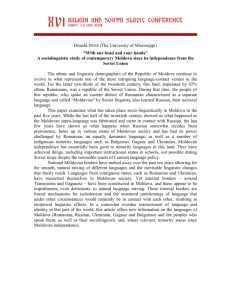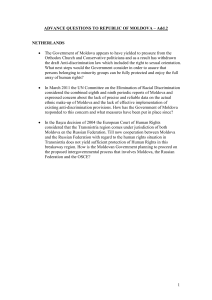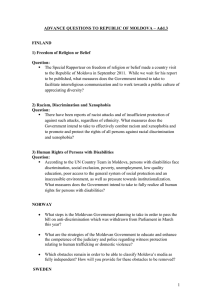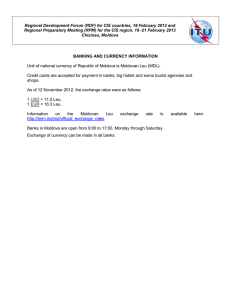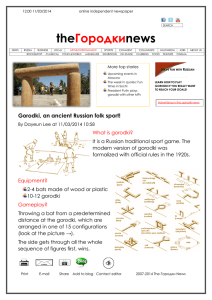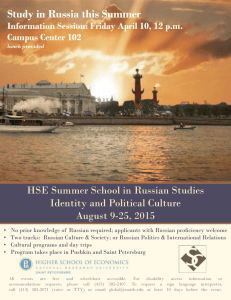Oral Statement of Youth Organization of Helsinki Citizens Assembly of... at the “Obstacles minorities of Moldova experience entering courts”
advertisement
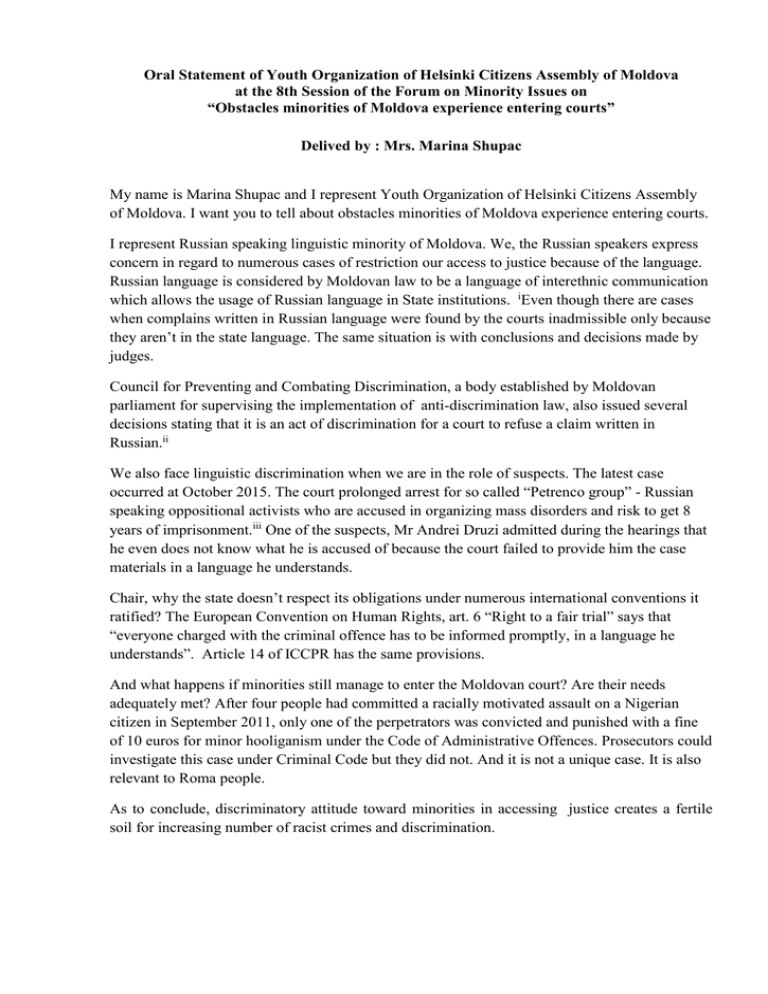
Oral Statement of Youth Organization of Helsinki Citizens Assembly of Moldova at the 8th Session of the Forum on Minority Issues on “Obstacles minorities of Moldova experience entering courts” Delived by : Mrs. Marina Shupac My name is Marina Shupac and I represent Youth Organization of Helsinki Citizens Assembly of Moldova. I want you to tell about obstacles minorities of Moldova experience entering courts. I represent Russian speaking linguistic minority of Moldova. We, the Russian speakers express concern in regard to numerous cases of restriction our access to justice because of the language. Russian language is considered by Moldovan law to be a language of interethnic communication which allows the usage of Russian language in State institutions. iEven though there are cases when complains written in Russian language were found by the courts inadmissible only because they aren’t in the state language. The same situation is with conclusions and decisions made by judges. Council for Preventing and Combating Discrimination, a body established by Moldovan parliament for supervising the implementation of anti-discrimination law, also issued several decisions stating that it is an act of discrimination for a court to refuse a claim written in Russian.ii We also face linguistic discrimination when we are in the role of suspects. The latest case occurred at October 2015. The court prolonged arrest for so called “Petrenco group” - Russian speaking oppositional activists who are accused in organizing mass disorders and risk to get 8 years of imprisonment.iii One of the suspects, Mr Andrei Druzi admitted during the hearings that he even does not know what he is accused of because the court failed to provide him the case materials in a language he understands. Chair, why the state doesn’t respect its obligations under numerous international conventions it ratified? The European Convention on Human Rights, art. 6 “Right to a fair trial” says that “everyone charged with the criminal offence has to be informed promptly, in a language he understands”. Article 14 of ICCPR has the same provisions. And what happens if minorities still manage to enter the Moldovan court? Are their needs adequately met? After four people had committed a racially motivated assault on a Nigerian citizen in September 2011, only one of the perpetrators was convicted and punished with a fine of 10 euros for minor hooliganism under the Code of Administrative Offences. Prosecutors could investigate this case under Criminal Code but they did not. And it is not a unique case. It is also relevant to Roma people. As to conclude, discriminatory attitude toward minorities in accessing justice creates a fertile soil for increasing number of racist crimes and discrimination. How can they change the situation? 1. Firstly, we recommend the state to ensure that Moldovan Supreme Court of Justice issue a related to usage of Russian language interpretative decision in order to unify the practice of all Moldovan courts. 2. Secondly, we also recommend Moldovan authorities to organize an informational campaign in order to inform justice sector employess about necessity to eliminate disctiminatory attitude toward national minorities using Russian language. 3. Finally, we recommend to Moldovan ministry of justice to conduct a set of training courses with prosecutors and police officers about application of Criminal Code provisions in regard to racist crimes. Thank you, Chair. 25th of November, 2016. i Law 3465 on «Functioning of languages», art. 3 ii It is about 5 decisions adopted in 2013-2014. Grigore Petrenco is a former Communist Party of Moldova parliamentarian and deputy chairman of the Unified European Left group in the Parliamentary Assembly of the Council of Europe (PACE). His arrest prompted a group of 30 PACE members from all political fractions to urge Moldova to immediately release all "political prisoners" – the first statement from abroad to refer to the "Petrenco group" members as such. iii
